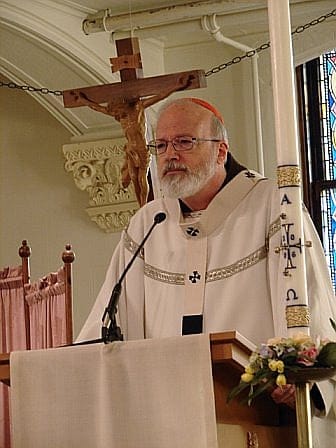Bombshell Letter Attacking Pope Francis Over McCarrick Also Questions Cardinal O’Malley

A bombshell letter calling out Pope Francis for his chummy association with a cardinal known to have sexually abused seminarians also questions Cardinal Sean O'Malley's denial that he knew anything about the now-disgraced churchman's past.
"Regarding Cardinal Sean O'Malley, I would simply say that his latest statements on the McCarrick case are disconcerting, and have totally obscured his transparency and credibility," Archbishop Carlo Maria Vigano, a former papal nuncio to the United States, wrote in a letter published Saturday night. Vigano called on Pope Francis and many other high-ranking bishops to resign.

